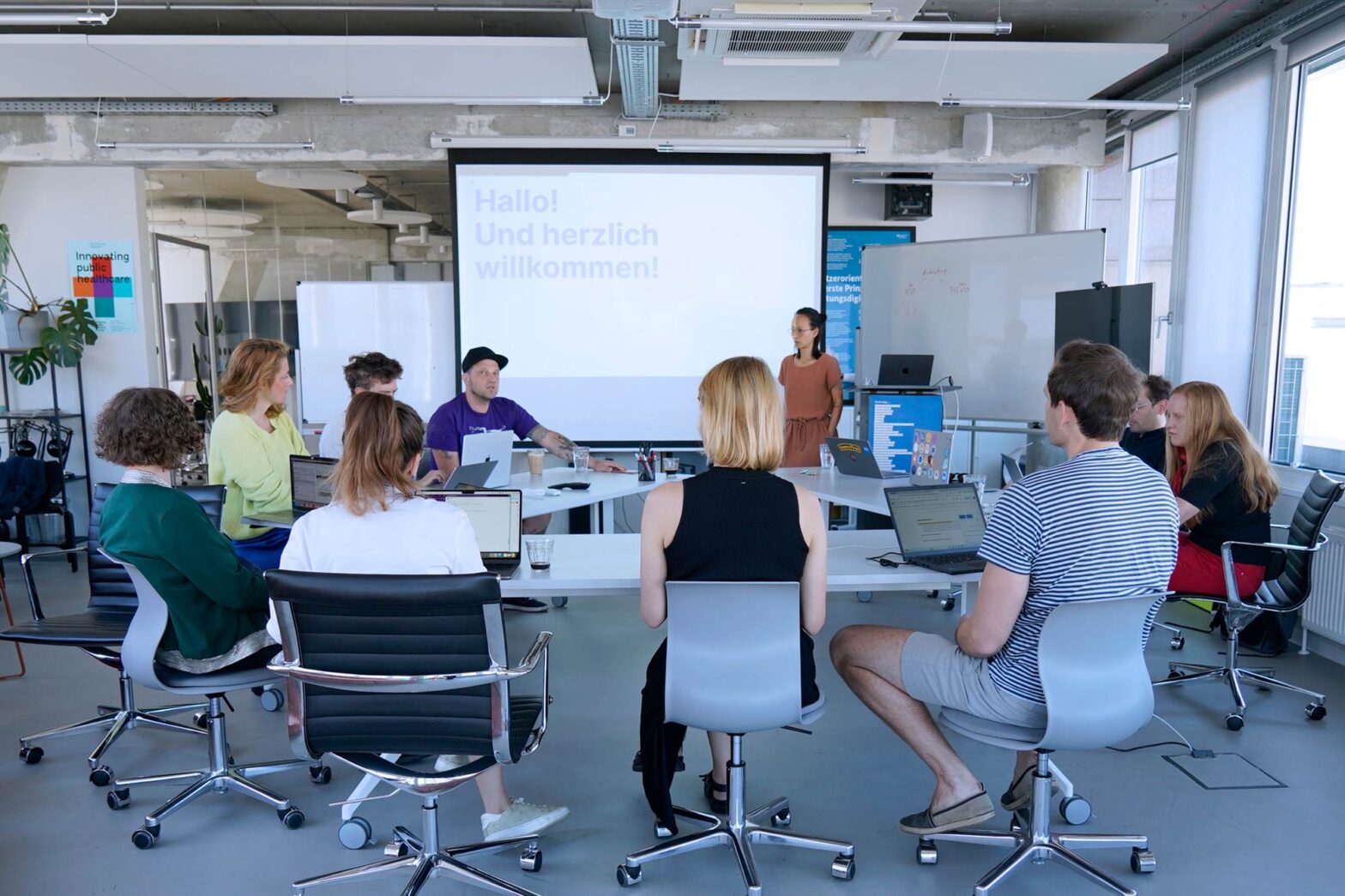It was a short week for me. I only worked Monday and Tuesday before heading off on my summer holidays on Wednesday morning.
Reviewing services
We spent the first 4 hours on Monday with our second Service Standard peer review in 2024.
Five service team members behind ‘Claim money for flight problems’ stopped by and, together with five peers, from 9 am to 1 pm, showed what they had done, discussed the 19 standard points, and told what was in store for them next.
It was the service team’s first time participating in a peer review, and they were a bit nervous initially. Their team, including the Federal Ministry of Justice colleagues, already had a Service Standard workshop last summer. Their current service scope is an advanced eligibility checker, which they plan to launch shortly. As part of the new service.justiz.de platform, they could reuse many components from the existing legal aid service.
Most of the peer reviewers were also new to the role. Caro, Kannika, and I have developed the introduction and documentation material for new peer reviewers. We are getting closer to packaging things and making them publicly available. That should happen via a blog post referencing the report for the ‘Claim money for flight problems’ service. I hope we can put it together by early August.
On Monday afternoon, I joined senior colleagues from the Federal Ministry of Justice for a meeting about other justice service work in progress. They have a draft bill with an experimentation clause published and want to make the best use of it once it goes through Parliament. I am excited about what might come and what this piece of legislation can unlock in the civil claims space.
On Tuesday afternoon, Sabrina scheduled a service naming feedback session for a new digital touchpoint of Digitalcheck. Her team has already created and soft-launched a tool finder for policymakers interested in using visualisation techniques during the drafting stage of new policies. Now, they want to extend the service offering for policymakers and try to get the name right. Sabrina provided essential context before we bounced ideas and scribbled options on the whiteboard. We finished the session with a reasonable conclusion following the GOV.UK Service Manual’s Naming your service guidance and my Service Gazette article on not using animal names from last year.
Doing editing and writing
Outside of work hours, Kara, Katrin and I synced to plan the next issues of The Service Gazette. It’s been almost 5 years since the most recent English-language edition and about 12 months since the last German one.
We need deadlines to deliver. So, we are aiming to get the English edition ready for the International Design in Government conference in Helsinki in early October. We have some drafts already, but want to extend the edition further.
A second German edition for early November will be a bit slimmer. With more user-centred design people working in the German public sector, content creation should be easier than ever. We have a solid list of potential contributors and topics.
During my holidays, only equipped with an iPad, I made edits and responded to the reviewer’s feedback on my Touchpoint article. The editing deadline was on the second day of my holiday, so there was no time to do it later. In the process, the article grew by about 250 words, breaking the word limit set by the editor-in-chief. I added various examples at the request of the anonymous reviewer. The process is robust, and the comments were reasonable without requiring more significant changes.
I’m looking forward to finishing the text titled ‘Multidisciplinarity as per Service Standard: How governments worldwide ensure public services are developed well’ as soon as possible.
What’s next
Only a little, as I will continue being on holiday until Thursday next week. On Friday next week, I will welcome my former GDS colleague Steph Marsh for an exchange.
I will then also examine how far the peer reviewers have gotten the report for the justice service and what it will take me to prepare it for publication.

